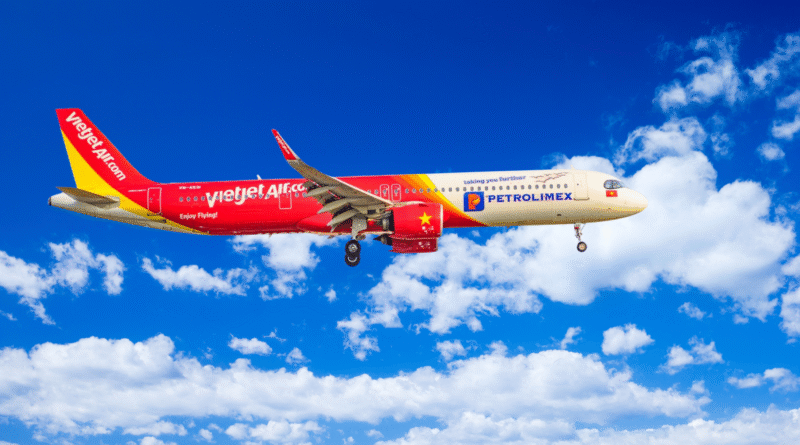Vietnamese Billionaire’s Vietjet Inks Airbus A321neo, Rolls-Royce Engine Deals Valued at $29 Billion — A New Era for Vietnam’s Aviation Ambitions
Vietnam’s low-cost carrier Vietjet Air, led by billionaire Nguyễn Thị Phương Thảo, has officially inked two major deals worth nearly $29 billion. The agreements include the purchase of 100 Airbus A321neo aircraft and a long-term partnership with Rolls-Royce for Trent 7000 engines and maintenance services.
The signing, which took place during a high-level Vietnam–UK trade event, marks one of the largest aviation deals in Southeast Asia’s history and highlights the growing global influence of Vietnam’s private sector and its fast-developing aviation market.
Breaking Down the $29 Billion Deal
1. Airbus A321neo Aircraft Order
- Vietjet converted its June 2025 Memorandum of Understanding into a firm order for 100 Airbus A321neo single-aisle aircraft.
- The Airbus A321neo offers 20% better fuel efficiency, extended range, and reduced noise, making it ideal for Vietjet’s regional and medium-haul expansion strategy.
- Airbus confirmed the order and emphasized that these aircraft will help Vietjet expand both domestic and international networks across Asia and potentially into Europe and the Middle East.
2. Rolls-Royce Trent 7000 Engine Agreement
- Vietjet also signed a major deal with Rolls-Royce to supply and maintain Trent 7000 engines—the powerplant used on the Airbus A330neo widebody aircraft.
- The agreement includes engine supply and comprehensive service support, ensuring long-term operational efficiency.
- Rolls-Royce’s Trent 7000 engine offers improved fuel burn and lower emissions, aligning with Vietjet’s sustainability goals.
Together, the aircraft and engine deals have a combined headline value of about $28.8–$29 billion, according to reports from Reuters, Forbes, and Airbus press releases. While the figure is based on list prices, the actual transaction value—after discounts and service adjustments—remains confidential.
Strategic Importance of the Deal
1. Strengthening Vietjet’s Market Position
With over 100 aircraft on order, Vietjet is set to become one of the largest single-aisle fleet operators in Asia. The A321neo will allow the airline to serve more passengers per flight, optimize costs, and strengthen its low-cost business model while expanding routes to new destinations.
2. Expanding International Reach
Vietjet has been steadily growing beyond domestic routes, launching services to India, Australia, Japan, and South Korea. The new A321neo fleet offers the range to connect Southeast Asia with Europe, the Middle East, and Africa, opening a new chapter in the airline’s international expansion strategy.
3. Boosting Vietnam’s Aviation Industry
The deal also reinforces Vietnam’s status as a rising aviation hub in Asia. With double-digit air traffic growth and a rapidly growing middle class, Vietnam’s domestic and outbound travel demand is expected to surge through 2030. Vietjet’s fleet expansion supports this macro trend while contributing to GDP growth and job creation in aviation, tourism, and services.
Financial and Operational Implications
- Fleet Growth: The addition of 100 A321neos will more than double Vietjet’s narrowbody fleet, providing capacity for over 200 aircraft by the end of the decade.
- Fuel Efficiency: Each A321neo delivers approximately 20% fuel savings and reduced CO₂ emissions, aligning with Vietjet’s environmental commitments.
- Maintenance Advantage: The Rolls-Royce partnership ensures long-term engine reliability and optimized lifecycle costs, supported by predictive maintenance systems.
- Financing Structure: Though valued at $29 billion, such large-scale deals are typically financed through leasing firms, export credit agencies, and manufacturer-backed credit lines.
Nguyễn Thị Phương Thảo’s Vision and Leadership
Vietjet’s founder and Chairwoman, Nguyễn Thị Phương Thảo, has long been recognized as one of Asia’s most influential business leaders. She became Vietnam’s first self-made female billionaire and transformed Vietjet into a global low-cost powerhouse.
Her vision extends beyond aviation — from finance to real estate — but Vietjet remains her flagship brand. This $29 billion deal reflects her ambition to position Vietjet as not just a regional carrier, but a global aviation player.
Environmental and Sustainability Impact
Airbus and Rolls-Royce both highlight sustainability as a core benefit of the new deals.
- The A321neo’s advanced engines and aerodynamics reduce per-seat emissions by up to 20% compared to older A320 models.
- Rolls-Royce’s Trent 7000 engines are compatible with Sustainable Aviation Fuel (SAF), helping Vietjet prepare for the global transition toward low-carbon aviation.
- Vietjet has also committed to operational efficiency initiatives, fleet modernization, and digital transformation to lower its overall carbon footprint.
Risks and Challenges Ahead
- Supply Chain Constraints: Airbus has reported ongoing production delays due to global supply shortages in engines and parts, which could affect delivery schedules.
- Financing and Cash Flow: With such a large order, Vietjet must balance aggressive expansion with sustainable debt levels and profitability.
- Market Volatility: Fluctuations in fuel prices, currency exchange rates, and regional competition could impact margins.
Despite these challenges, analysts view Vietjet’s fleet expansion as a long-term growth move aligned with Asia’s aviation recovery post-pandemic.
Conclusion
Vietjet’s $29 billion dual deal with Airbus and Rolls-Royce is more than just a purchase order — it’s a strategic statement. It underscores Vietnam’s emergence as a major player in global aviation and highlights Nguyễn Thị Phương Thảo’s ambition to build an airline that combines affordability, efficiency, and international reach.
As deliveries begin in the coming years, Vietjet is well-positioned to transform from a regional low-cost airline into a world-class carrier representing Vietnam on the global stage.
Key Takeaways
- Deal Value: Approx. $29 billion (Airbus + Rolls-Royce)
- Aircraft Ordered: 100 Airbus A321neo
- Engines: Rolls-Royce Trent 7000 (for A330neo fleet)
- Fuel Efficiency: Up to 20% lower consumption
- Chairwoman: Nguyễn Thị Phương Thảo
- Strategic Goal: Fleet modernization and global expansion




